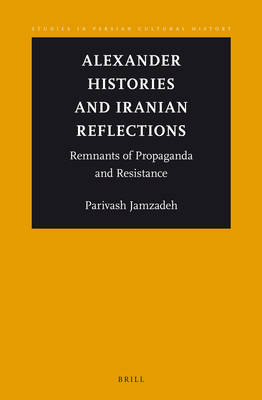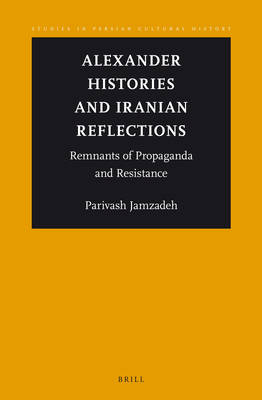
- Afhalen na 1 uur in een winkel met voorraad
- Gratis thuislevering in België vanaf € 30
- Ruim aanbod met 7 miljoen producten
- Afhalen na 1 uur in een winkel met voorraad
- Gratis thuislevering in België vanaf € 30
- Ruim aanbod met 7 miljoen producten
Zoeken
€ 222,95
+ 445 punten
Omschrijving
Alexander the Great's military campaign to conquer the Achaemenid empire included a propaganda campaign to convince the Iranians his kingship was compatible with their religious and cultural norms. This campaign proved so successful that the overt display of Alexander's Iranian and Zoroastrian preferences alienated some of his Greek and Macedonian allies. Parivash Jamzadeh shows how this original propaganda material displayed multiple layers of Iranian influences. Additionally she demonstrates that the studied sources do not always offer an accurate account of the contemporary Iranian customs, and occasionally included historical inaccuracies.
One of the most interesting finds in this study is the confusion of historical sources that arose between the opponents Darius III and Alexander. Jamzadeh argues that the Iranian propaganda regarding Alexander the Great has contributed to this confusion.
One of the most interesting finds in this study is the confusion of historical sources that arose between the opponents Darius III and Alexander. Jamzadeh argues that the Iranian propaganda regarding Alexander the Great has contributed to this confusion.
Specificaties
Betrokkenen
- Auteur(s):
- Uitgeverij:
Inhoud
- Aantal bladzijden:
- 204
- Taal:
- Engels
- Reeks:
- Reeksnummer:
- nr. 3
Eigenschappen
- Productcode (EAN):
- 9789004217461
- Verschijningsdatum:
- 17/08/2012
- Uitvoering:
- Hardcover
- Formaat:
- Genaaid
- Afmetingen:
- 163 mm x 243 mm
- Gewicht:
- 462 g

Alleen bij Standaard Boekhandel
+ 445 punten op je klantenkaart van Standaard Boekhandel
Beoordelingen
We publiceren alleen reviews die voldoen aan de voorwaarden voor reviews. Bekijk onze voorwaarden voor reviews.








